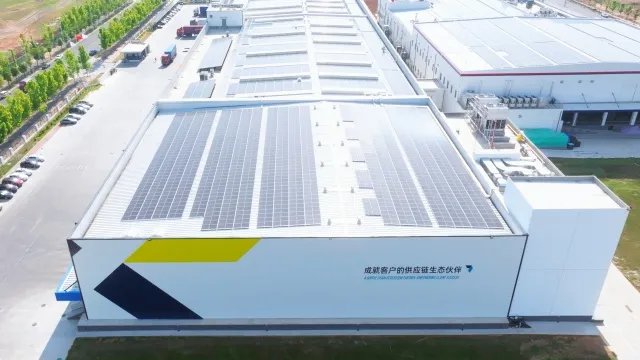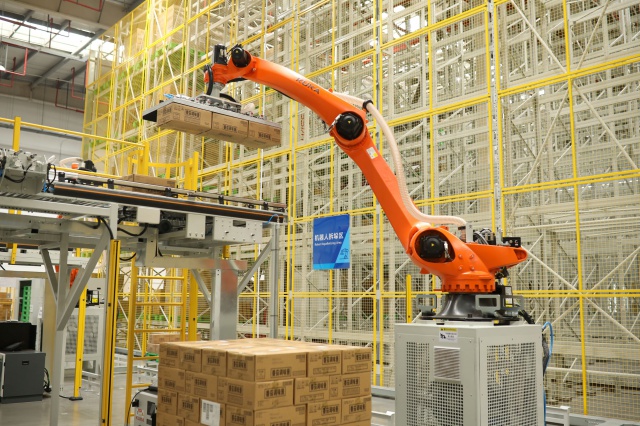
Inside McDonald’s $206m supply chain hub in China
This is a joint project between four of McDonald’s China’s major suppliers
McDonald’s China, together with four of its major suppliers, has unveiled the Hubei Smart Food Industrial Park set to accelerate McDonald's brand development in central and western China.
The park has a combined investment of CN¥1.5b ($206m) and was launched in partnership with Bimbo QSR, XH Supply Chain, Tyson Foods Inc, and Zidan, McDonald’s China’s major suppliers.
In a press release, the park is estimated to produce over 30,000 tons of meat products, nearly 300 million pieces of bread, 30 million pastries, and two billion packaging products. The park is equipped with a 25,000 square meter high-standard automated operations cold storage and dry goods warehouse, improving the logistic efficiency and reducing the time for goods to enter the warehouse by 90%.

According to McDonald’s the Hubei Smart Food Industrial Park will be a pivotal point for McDonald's China to enhance supply efficiency and stability for its restaurants in central and western China, providing fresh, safe, and valuable McDonald's meals to more customers.
Smart supply chain
The park marks a key milestone in McDonald’s China’s smart supply chain development. McDonald's China and its supply chain partners have built a new generation smart supply chain based on cutting-edge digital platform technologies.
In the park’s factories, interconnected systems enable seamless information exchange between suppliers and McDonald's China, traceability of food materials and production, and real-time monitoring of production efficiency. With algorithm engines, production schedules can be further optimised.
The automated warehouses analyze inventory and supplier capacity in real time, enabling automatic replenishment based on demand forecasts. Utilising IoT, navigation, and big data technologies, cold chain transportation achieves full visibility, allowing real-time tracking of key information such as product types and quantities, environmental conditions, and transport status, ensuring food safety and quality at every step.
When products arrive at McDonald's restaurants, digital tools manage inventory intelligently, monitoring stock levels and expiration dates in real-time, reducing food safety risks and waste.
The park also adopts innovative logistics solutions, achieving full-process automation in its automated smart warehouse. The warehouse features a pallet stacking system, box multi-channel storage system, intelligent robotic arms, and automated mobile robots (AMRs), working in coordination to achieve efficient sorting and operations, creating a one-stop, high-efficiency, zero-difference digital warehouse operation solution.

The smart warehouse solution also supports the RFID and other IoT technology upgrades currently led by McDonald's China, significantly enhancing traceability efficiency, and ensuring real-time data traceability throughout the entire process from raw materials to cold chain distribution. This enables McDonald's to continuously reduce inventory burden, improve operational efficiency, and deliver safer, higher-quality meals to customers.
"Our rapidly growing business demands a more extensive distribution network for McDonald's China's supply chain. The smart supply chain enhances our efficiency and resilience, bringing us closer to our customers and communities," said McDonald's China CFO, Huang Hongfei. "In the future, we will continue to deepen cooperation with our supplier partners, using innovation to drive transformation, so more customers can enjoy McDonald's deliciousness faster and better."
Last year, McDonald’s has announced that it has reached an agreement with global investment firm Carlyle to buy back its minority ownership stake in McDonald’s businesses in China, Hong Kong, and Macau, increasing its stake by 48%.
























